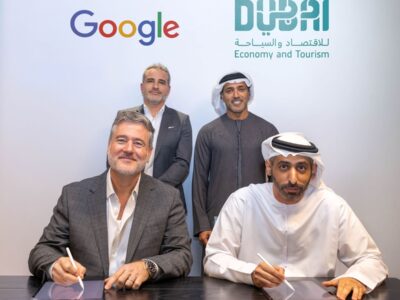Securing funding to launch a start-up is among the most daunting aspects of entrepreneurship, let alone if the said entrepreneur is a woman navigating a man’s world of venture capitalists and investors, female start-up founders in the region told Arabian Business.
MENA start-ups with at least one female founder received only 11 percent of available funding in 2018, on a par with the 12 percent average in the US for that year, revealing a global challenge faced by female-led start-ups the world over.
“Aggregate data from the MAGNiTT platform between 2014 and 2020, looking specifically at funded start-ups in the Middle East and North Africa region, shows that approximately 2 percent were founded by women, while around 96 percent were founded by men, and another 2 percent were co-founded by men and women,” said Dana Aljawder, chief technology officer at MAGNiTT, a start-up data platform.
“Raising funds is one of the biggest challenges faced by all entrepreneurs. But, female founders also have to navigate industries and existing relationships that have historically been dominated by men, particularly in the tech space,” she continued.
Aljawder added: “Although traditional gender roles are increasingly breaking down, women are still seen as the de facto caretakers and proudly take on that role. However, we are still seeing the associated social and cultural expectations presenting barriers when it comes to making a case to potential investors.”
UAE-based female start-up founders spoke to Arabian Business about hidden biases that impacted their access to funding.
“In the beginning, my main challenge was the confidence to pitch – as I had never raised before… Gradually I was able to grow the pipeline of prospects and build better networking acumen to qualify who was a good fit and who wasn’t,” said Anisha Oberoi, founder and CEO, of Secret Skin.
“Unfortunately for women, male investors word their apprehensions quite differently than they would to male founders as there is a subconscious bias around capability and hence there were many disappointments. I got better with every pitch, but I had to keep at it to learn how to counter every pushback and finally the right investors came in,” she continued.
![]() Anisha Oberoi, founder and CEO of Secret Skin.
Anisha Oberoi, founder and CEO of Secret Skin.
While this scenario may look bleak, the good news is that the region’s venture capitalists are aware of the struggles women face to secure funding for their businesses and are working to address them.
“At Modus, we strongly believe in creating an environment that fosters female entrepreneurship and closes the funding gap between male and female founders that is very much prevalent in the ecosystem today, particularly in the early-stage,” said Simon Tkachenko, partner at Modus Capital, a MENA venture builder firm.
Modus Capital is working with Hub71 on Ventures Lab, an Abu-Dhabi based venture builder with a key focus of attracting early-stage female founders to the program.
“We’re proud of our reality, but understand that this is an ongoing obstacle where changes will only occur once we realise that biases exist and in turn, tackle them by creating opportunities for female entrepreneurs to thrive in.
“Regional VC’s need to identify and remove unconscious gender biases, focus on being more approachable or empathetic, and shift towards providing tailored support in order to create an inclusive ecosystem that generates both economic and socially impactful returns,” continued Tkachenko.
![]() Simon Tkachenko, partner at Modus Capital.
Simon Tkachenko, partner at Modus Capital.
Through programmes such as The Outliers and Ventures Lab that prioritise female founders and a partnership with Standard Chartered’s Women in Tech programme, Abu Dhabi-based Hub 71 is doing its own part to support women-led business, explained Jida Itani, its chief operating officer.
“Women have typically received 5 percent less funding than men and, as part of our long-term commitment to bridging this gap, we have made it a priority to promote women in technology and address any funding challenges for all founders,” said Itani.
“We are also seeing increasing numbers of female founders and female-led venture capital funds that are encouraging and inspiring for the next generation of women technology leaders to follow suit,” she added.
GCC countries like Saudi Arabia and the UAE have taken several positive strides in support of women in business, with the UAE mandating equal pay between men and women in the private sector last October. Such policies will ultimately reflect a more positive economic environment for all women, including those in the enterpeunirship space, Aljawder said.
“Over the last few years, there has been a global shift in the perception of what leadership looks like and a drive towards empowering women. We see the same happening at the top levels of our region, specifically in the UAE and Saudi Arabia,” she explained.
“I believe that the start-up ecosystem is a microcosm of the countries and regions they are in. Change takes time but witnessing these changes at the highest level will trickle down and I hope that we start to see these changes reflected in the startup ecosystem over the next few years,” continued Aljawder.
![]() Dana Aljawder, chief technology officer at MAGNiTT.
Dana Aljawder, chief technology officer at MAGNiTT.
While waiting for that change to trickle down, there are several measures which could be taken to reduce the barriers women face in accessing funding for their businesses.
“There is a need for better infrastructure or support to encourage women to explore entrepreneurship from a younger age. Similarly, ‘on the job’ exposure to start-up culture is highly valuable. The most successful founders internationally were once employees of startups, and we are only now starting to see a rise in the number of women joining early-stage startups.
“It will be interesting to observe the trend and see if the same patterns emerge with female founders, and as a community we should work towards creating an environment that advocates this,” said Aljawder.
“We also need to acknowledge that, in order to reduce the barriers faced by female entrepreneurs, we need more women sitting on the other side of the table. If we could see more representation in the venture capital space, investors would be far better placed to understand the perspective of, and challenges faced by, female founders,” she continued.
Speaking out of personal experience, female-led start-ups Arabian Business spoke to give their fellow entrepreneurs, regardless of their gender, advice on navigating the funding ecosystem.
“The answer, sometimes, is simpler than it looks. First and foremost, you have to be willing to knock on all doors. Then, you need to make sure your brand represents a unique key factor within the market, which means, you need a proposition with enough single-minded value to stand out from the competition. And third, but definitely not least important, you can’t let yourself take no for an answer, even if all capital for investing seem to be going for tech startups,” said Sara Chemmaa (pictured above), founder and CEO of Citron.
“If you’re a non-tech, think about how your business could be attractive even for technology angels. Still, as most VCs will probably say no to non-tech start-ups, some of them do end up saying yes, so looking for the right yes people is key,” she continued.
Khadija Hasan (pictured above), founder & CEO of Krispr Farm said: “Don’t chase the money but instead, find the quickest and cheapest way to get to MVP and traction. Also, develop a thick skin as there will be many ‘Nos’ before you get to ‘Yes’.”
“Finally, celebrate small wins. Building a company can be likened to a journey of a thousand miles, which as someone once said, begins with a single step,” she added.





